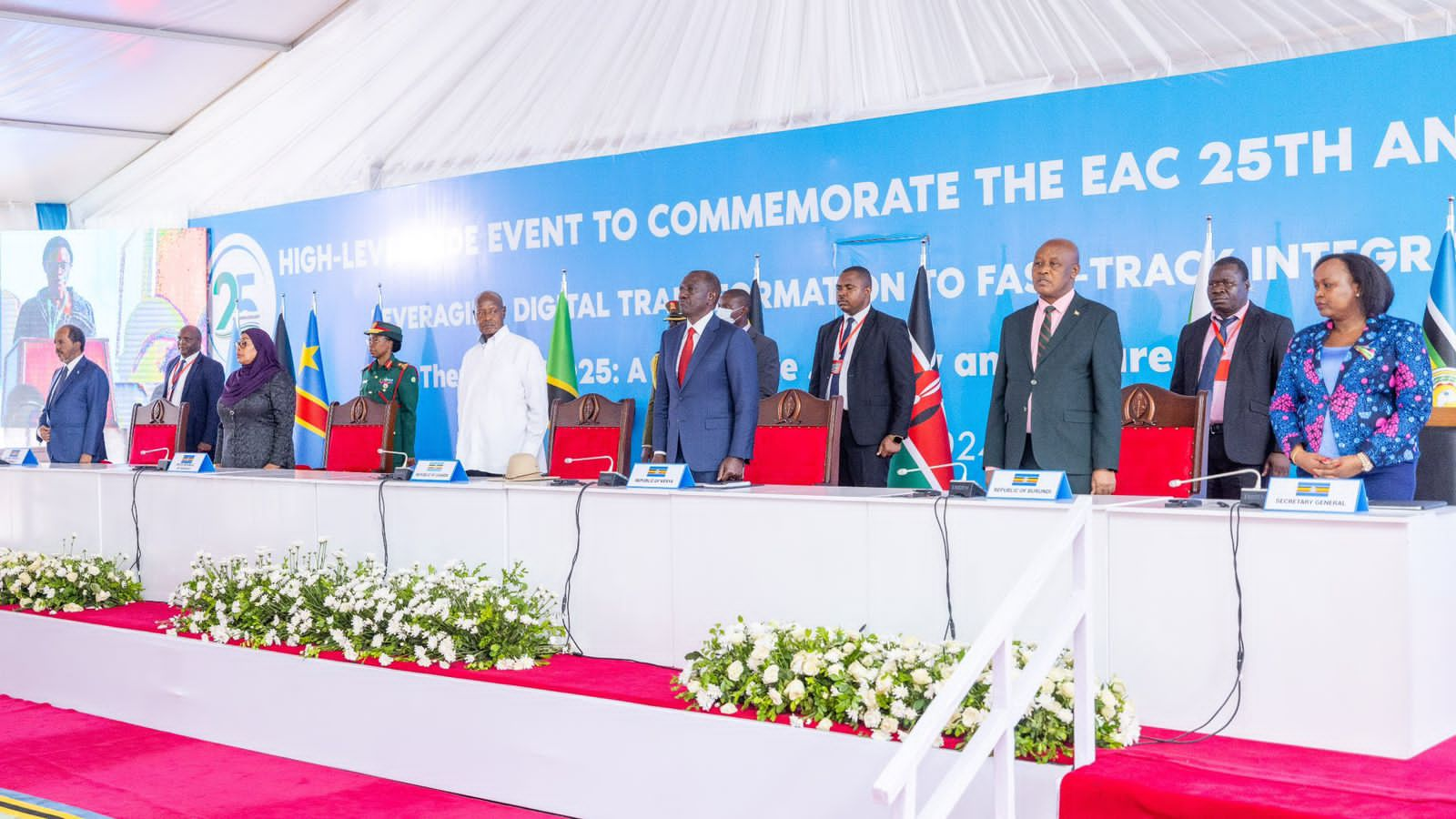Ethiopia snubs joining East African Community, cites economic imbalance and readiness gaps

Ethiopia has ruled out the possibility of joining the East African Community (EAC) anytime soon, casting doubt over the bloc's ambition of expanding its regional integration footprint deeper into the Horn of Africa.
According to Ethiopia's Ministry of Trade and Regional Integration, accession to the EAC is currently untenable, citing economic, logistical, and fiscal concerns.
The key sticking points include the bloc's customs revenue-sharing mechanisms and its protocols on the free movement of goods and labour, the principles at the heart of the EAC's economic union agenda.
"To become a member of the EAC, we must first do a lot of research," said Samuel Gizaw, coordinator of the African Continental Free Trade Area (AfCFTA) at the ministry. "Ethiopia is not ready, nor has it done the required groundwork."
Gizaw, speaking to reporters in Addis Ababa, warned that opening up Ethiopia's market under the EAC framework would force the country to forgo key trade protections.
"It's not feasible to allow free movement of workers and goods without taxation," he added, noting that the current customs union setup would undermine Ethiopia's trade revenues.
With annual trade earnings reportedly hitting $17 billion, Addis Ababa fears that joining the EAC would require it to share a portion of these revenues with the bloc's eight member states, including recent entrants like Somalia and the Democratic Republic of Congo.
"Under the current structure, joining the EAC would be detrimental to Ethiopia," Gizaw stated, as quoted by The Ethiopian Reporter.
Despite no formal application being submitted, Ethiopia's potential membership has been widely speculated, with past EAC leaders, particularly Kenya's former Cabinet Secretary for EAC affairs, Peninah Malonza, expressing optimism over Ethiopia's accession.
In 2024, Malonza claimed that Ethiopia was on the verge of joining the bloc—a statement that was swiftly dismissed by Ethiopian officials as "baseless."
While the business community in Ethiopia has shown interest in accessing the larger EAC market, the government insists its current priority lies with operationalising the African Continental Free Trade Area.
"Joining the EAC depends on Ethiopia's economic cooperation strategy and internal capacity," Gizaw said. "But we cannot commit to any timeline."
For now, Ethiopia's strategic calculus favors continental trade liberalization over regional integration, signaling a more cautious and calculated approach to deepening ties with its East African neighbors.
According to Ethiopia's Ministry of Trade and Regional Integration, accession to the EAC is currently untenable, citing economic, logistical, and fiscal concerns.
The key sticking points include the bloc's customs revenue-sharing mechanisms and its protocols on the free movement of goods and labour, the principles at the heart of the EAC's economic union agenda.
"To become a member of the EAC, we must first do a lot of research," said Samuel Gizaw, coordinator of the African Continental Free Trade Area (AfCFTA) at the ministry. "Ethiopia is not ready, nor has it done the required groundwork."
Gizaw, speaking to reporters in Addis Ababa, warned that opening up Ethiopia's market under the EAC framework would force the country to forgo key trade protections.
"It's not feasible to allow free movement of workers and goods without taxation," he added, noting that the current customs union setup would undermine Ethiopia's trade revenues.
With annual trade earnings reportedly hitting $17 billion, Addis Ababa fears that joining the EAC would require it to share a portion of these revenues with the bloc's eight member states, including recent entrants like Somalia and the Democratic Republic of Congo.
"Under the current structure, joining the EAC would be detrimental to Ethiopia," Gizaw stated, as quoted by The Ethiopian Reporter.
Despite no formal application being submitted, Ethiopia's potential membership has been widely speculated, with past EAC leaders, particularly Kenya's former Cabinet Secretary for EAC affairs, Peninah Malonza, expressing optimism over Ethiopia's accession.
In 2024, Malonza claimed that Ethiopia was on the verge of joining the bloc—a statement that was swiftly dismissed by Ethiopian officials as "baseless."
While the business community in Ethiopia has shown interest in accessing the larger EAC market, the government insists its current priority lies with operationalising the African Continental Free Trade Area.
"Joining the EAC depends on Ethiopia's economic cooperation strategy and internal capacity," Gizaw said. "But we cannot commit to any timeline."
For now, Ethiopia's strategic calculus favors continental trade liberalization over regional integration, signaling a more cautious and calculated approach to deepening ties with its East African neighbors.
East African Community
ethiopia economy
East African Currency
East African Cooperation
EAC member states
Let’s Connect
We’re here to listen, support, and engage with you.
Whether it’s feedback, a request, or collaboration — Hon. Yusuf Hassan’s team welcomes your message.
Office Address
Kamukunji Constituency Office, Nairobi
Call
+254 737 500200, +254 716 667733
“Leadership is not about position — it’s about purpose, people, and progress.”